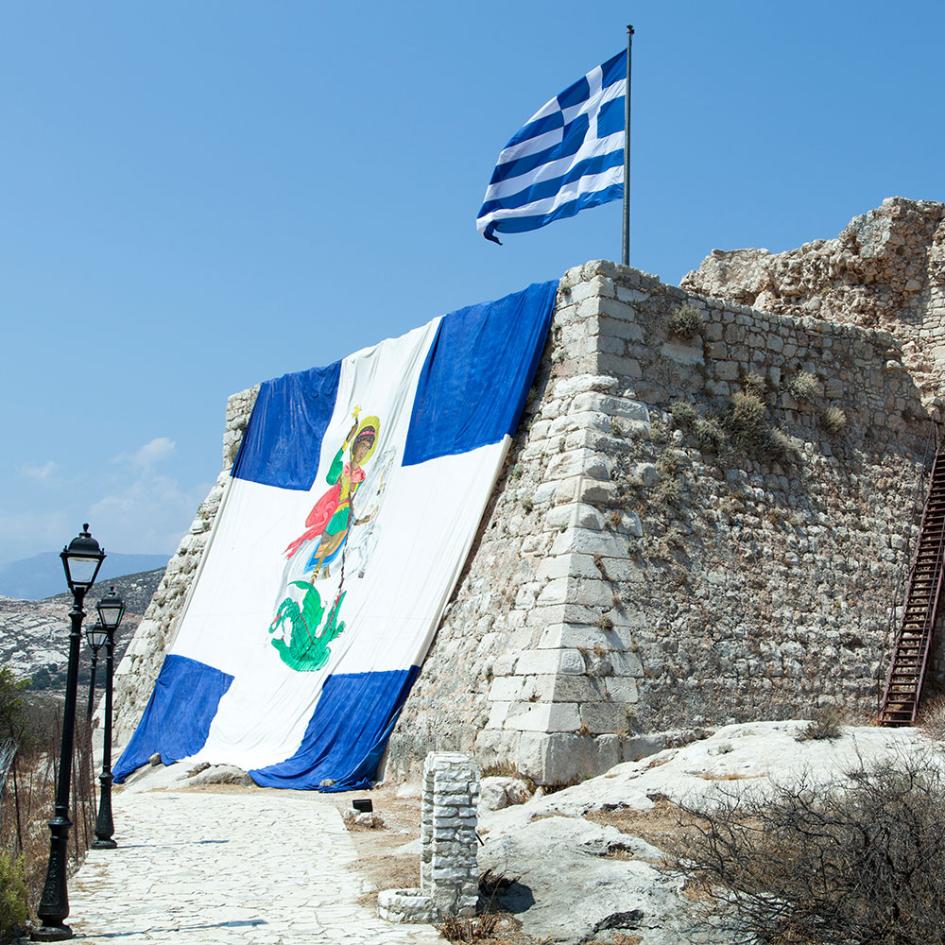You may recognise Saint Andrew as the patron saint of Scotland, which, to be fair, is what he is most known for. There are several other countries all over the world, however, that celebrate St Andrew’s Day and commemorate him as their very own patron Saint. So, if you would like to mark the day in a warmer climate or experience an alternative tradition, here are the other countries you can travel to.
An ancient Scottish legend states that a Greek monk who went by the name St Rule had a vision in which he was instructed to bring the apostle Andrew to the ‘ends of the earth’ for safekeeping. This mission led him to what is now known as the town of Fife.
Churches all over Europe commemorate St Andrew’s Day by filling the churches to worship and remember the Patron Saint on the last day of November. This is especially the case in Patras, one of the largest cities in Greece, where the Cathedral of St Andrew in the city is filled to the brim with worshippers.
It gets so busy that they spill into the streets and participate in a colourful and lively procession on the streets of Patras. The relics and icons of St Andrew are carried by believers, and chants and prayers accompany the celebrations.
St Andrew’s Day was made a national holiday in Romania back in 2012 as the popularity of the patron started to spread and grow widely. This led to the construction of several churches all over the country, with many of them being dedicated to St Andrew.
People in Romania engage in several activities and traditions on St Andrew’s Day to enjoy and remember old Romanian superstitions associated with the feast. Some Romanians, for example, put out garlic to ward off ghosts or eat a specific type of salty bread, hoping to have a vision of whom they will marry in a dream.
Several churches all over Romania contain detailed statues, paintings, and other pieces of artwork representing St Andrew as a way of honouring him as the patron Saint of the country. These churches are usually packed with believers on 30th November, commemorating him on this day.
When it comes to celebrating St Andrew’s Day, Poland has its own unique way of doing so, which is more in line with paganism than Catholicism. It is called Andrzejki, and it is a day of traditional Polish customs that lead to predicting the future.
These traditions were taken very seriously in the past as it was one of those days when people believed they could see into their futures before the time of horoscopes. The most well-known Andrzejki ritual was women melting candle wax through a skeleton keyhole and letting the wax drop in cold water to cool and take shape. This was then held against the light and studied for distinctive signs of her future husband’s features and characteristics.
Today, Andrzejki has lost its sense of witchcraft, and is a time of social merriment where friends and family gather together for a grand feast. It is the last day before Christmas Lent in Poland, so people eat and drink as much as they can with a party full of dancing, games and a whole load of other fun activities to enjoy together.
St Andrew’s Day is one of the most significant days in the Scottish calendar, marking the start of Scotland’s annual winter festival. The only other dates as important in Scotland are Burns Night (25th January) and Hogmanay (New Year).
It is an official bank holiday in Scotland and is a chance for people all over the country to come together and celebrate Scottish culture with traditional food, drink, and lots of dancing. The celebrations tend to last the whole day, with the merriment lasting late into the night.
If you are lucky enough to celebrate St Andrew’s Day in Scotland, some local traditional dishes to try are Cullen skink (fish soup), neeps, haggis, and tatties (swede and potatoes). Then, you can finish it all off with a delicious piece of Cranachan (a traditional dessert made from oats, cream, whiskey and raspberries).



